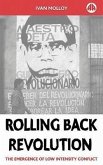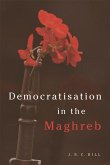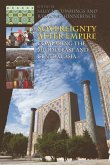'We often think that modern nation-states suppress other collective identities identities, but this thought-provoking book turns that assumption on its head, showing how fluid regional and religious identities were constituted as "minorities" through the very process of state-building. Scholars interested in the relationship between collective mobilization and political institutions will want to read this book.' Susan Pedersen, Professor of History, Columbia University Why, in the years around 1920, did the concept of 'minority' suddenly become prominent in public affairs worldwide? Within a decade after World War One, the term became fundamental to public understandings of national and international politics, law, and society: minorities (and majorities too) were taken to be an objective reality, both in the present and the past. This book uses a study of Syria under the French mandate to show what historical developments led people to start describing themselves and others as 'minorities'. Despite French attempts to create territorial, political, and legal divisions, the mandate period saw the consolidation of the nation-state form in Syria. There was a trend towards a coherent national territory with fixed borders and uniform state authority within them, while the struggle to control the state was played out in the language of nationalism - developments in the post-Ottoman Levant that closely paralleled events in Europe at the same time, following the demise of the Austro-Hungarian and Tsarist empires. Through close attention to what changed in French mandate Syria, and what those changes meant, the book argues for a careful reappraisal of a term too often used as an objective description of reality. Benjamin Thomas White is a Lecturer in Modern History at the University of Birmingham. Jacket image: Orphans weaving a carpet in the courtyard of the Chamieh house, Damascus, Syria, Oct. 9, 1921. Autochrome de Frédéric Gadmer (in
Hinweis: Dieser Artikel kann nur an eine deutsche Lieferadresse ausgeliefert werden.
Hinweis: Dieser Artikel kann nur an eine deutsche Lieferadresse ausgeliefert werden.








